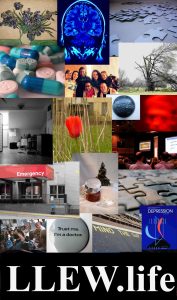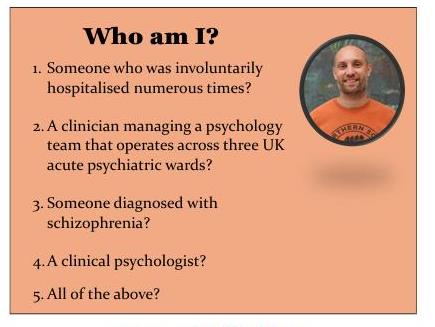If what we are experiencing isn’t an ‘Illness’ then what is it?
Consumer developed or adopted approaches and how they fit together“
Note, this is not a suggestion that a LLEW must adopt the approaches below, just a note that alternatives exist and are accepted widely in parts of our world.
————————————————————————————
- What Causes Mental Illness?
Open Dialogue – a non-illness based evidenced approach to understanding where ‘mental illness’ comes from.
Key principles of the Open Dialogue method include: the participation of friends and family, responding to the client’s utterances (which may seem nonsensical in the case of psychosis), trying to make meaning of what a client has to say, and “tolerating uncertainty”.[6]
In a paper illustrating the Open dialogue method Seikkula, Alakar and Aaltonen postulate that “from the social constructionist point of view, psychosis can be seen as one way of dealing with terrifying experience in one’s life that do not have language other than the one of hallucinations and delusions” and that “psychotic reactions should be seen [as] attempts to make sense of one’s experiences that are so heavy that they have made it impossible to construct a rational spoken narrative” arguing that people may talk about such experiences in metaphor.
————————————————————————————
2) How to lead someone out of it, connecting to someone’s experience and values
Distilling how we help each other informally and teaching it.
The Four Tasks
- Building Connection
- Helping each other understand how we’ve come to know what we know (worldview)
- Re-defining help as a co-learning and growing process (mutuality)
- Moving towards what we want, rather than away from what we don’t want
————————————————————————————
3) Presenting antidotes to distress
Personal Medicine is an activity someone does because it helps them feel better or increases their “wellness”. Personal Medicine can be things like: l Working as a carpenter l Being a good parent to my 3-year old daughter l Vegetable gardening
4) How to get some peace if pills don’t work.
Hearing Voices/ Beyond belief – separating distress from unusual experiences
“I read about the work of Marius Romme and the Hearing Voices Movement. I found their approach of accepting the voice-hearers’ own explanation for their voices, and working within the voice-hearers’ own reality, to be inspirational. As a result, I decided to expand their approach to the experience of unusual beliefs and different ways of seeing reality.”
————————————————————————————
5) ‘Professional’ alternatives to the ‘Illness’ model
The British Psychological Society’s division of clinical psychology (DCP) in 2013 issued a statement declaring that, given the lack of evidence, it is time for a “paradigm shift” in how the issues of mental health are understood. The statement effectively casts doubt on psychiatry’s predominantly biomedical model of mental distress – the idea that people are suffering from illnesses that are treatable by doctors using drugs.
The DCP said its decision to speak out “reflects fundamental concerns about the development, personal impact and core assumptions of the (diagnosis) systems”, used by psychiatry…”

